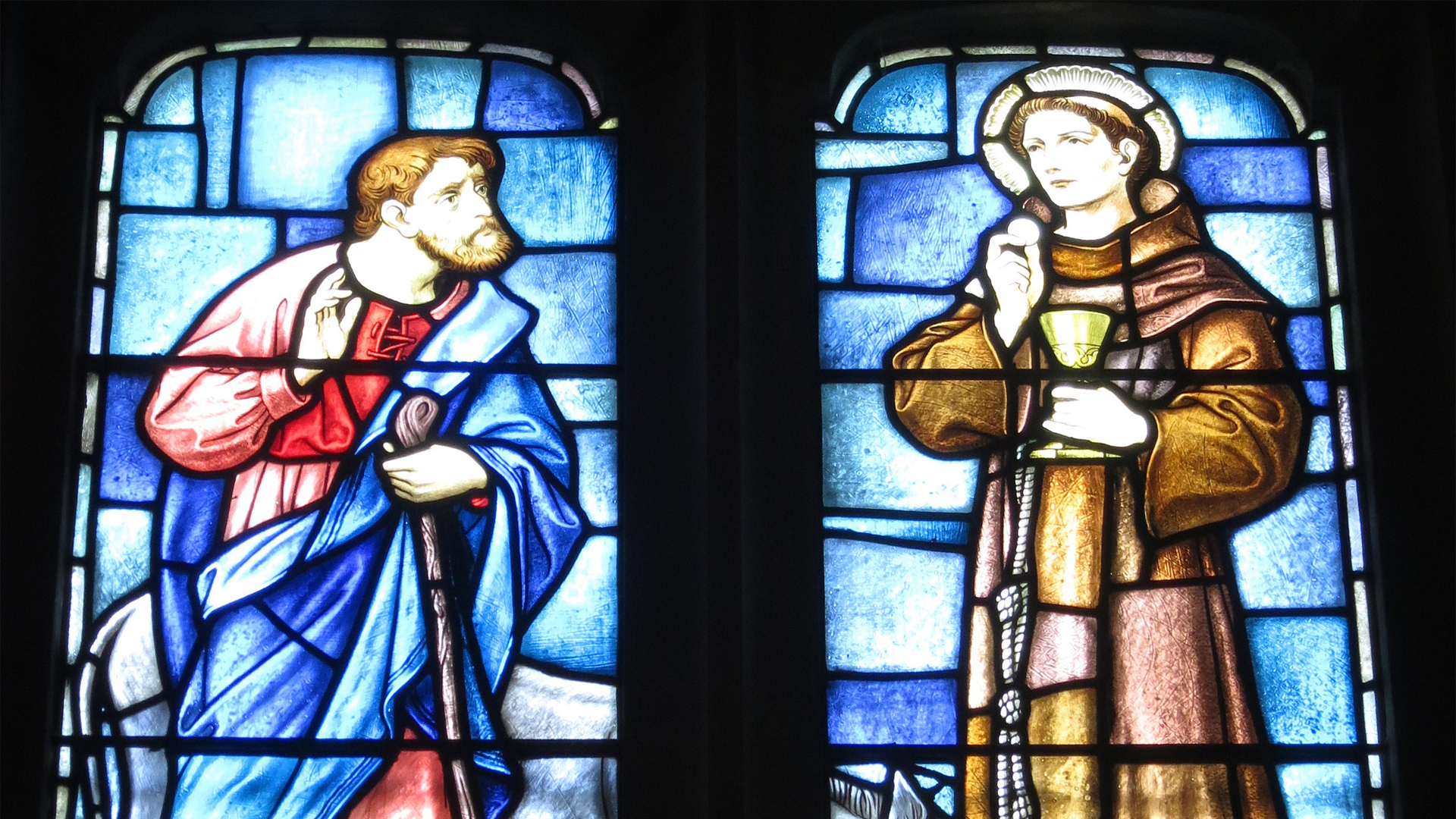There is no Catholic who, when confronted with a lost article, doesn’t immediately turn to St. Anthony.
How he got this reputation as the “Finder of Lost Articles,” later. But first, why do we Italians venerate this man from Portugal?
Along with St. Francis of Assisi, the founder of the Franciscan Order, St. Anthony of Padua is probably the most recognized member of the Franciscans. And how he finally arrived at the Franciscans is an amazing story.
Having been born into an aristocratic Portuguese family in 1195, he was baptized Fernando Martins de Bulhões. However, Fernando was not drawn to a life of nobility and leisure and so, against his family’s wishes, he entered the Augustinian Abbey of St. Vincent in Lisboa (Lisbon), then Portugal’s coastal capital, at age 15. However, through a series of transfers – legend attributes these transfers to constant family visits – he finally, while in Coimbra, stumbled upon the Franciscans. He began to study theology and was assigned as the humble guest master – the doorkeeper.
Following the assassination of several Franciscans in Morocco, Fernando zealously requested permission to enter the Franciscans, taking the name of Anthony, the name by which the Coimbra monastery was known. He was then sent on a mission to Morocco. And when, on a return trip to Portugal, a storm drove his ship into Messina, Sicily. From there, he began to travel around Italy, all the while pursuing admittance to a monastery,
When he was turned away at Assisi, he was eventually assigned to a hospice in Romagna, due to his poor health. Though not initially recognized as an intellectual and a great speaker, his talents were finally recognized when he was asked by his superior to step in as the guest homilist at the ordination of a visiting Dominican priest. Everyone was impressed with his scriptural knowledge and speaking ability.
Anthony continued to distinguish himself as a master preacher and miracle worker and he traveled throughout all of northern Italy and southern France sharing his gifts.
Due to Anthony’s intellectual abilities, St. Francis, who initially mistrusted intellectual pursuits, seeing them as incompatible with a life of simplicity, began to recognize the importance of studies in the development of his followers, and he entrusted their academic formation to Anthony.
Anthony’s reputation continued to spread throughout Italy.
In 1231, while stationed in Padua, Anthony was invited by the Pope to deliver a collection of his talks entitled, “Sermons for the Feast Day,” but on his way to Rome, he fell ill. He died at the age of 36, as he was returning to Padua, where he always wanted to live out his remaining years.
He was buried in what is now the Basilica of St. Anthony in Padua. The Basilica is one of the largest churches in the world and is visited by millions of pilgrims each year – including yours truly. (If you’ve never been there, it should definitely be added to your bucket list. You can be escorted behind the altar of the Basilica where Anthony’s tongue is preserved. [Okay, okay, you don’t have to look. But just to be close to the tongue that brought so many of the Italian people to love and embrace the Gospel is a powerful experience.]) While Anthony also served as a professor at a number of universities, he is primarily remembered because of the power of his preaching.
So, why do Italians love this foreigner? Because he first loved them!
You may recall the masses of people in St. Peter’s Square at the funeral of John Paul II. At the conclusion of the mass, many began to chant “Santo Subito!” which, loosely translated, means, “Declare him a saint quickly.”
Well, Anthony became one of the most quickly canonized saints in history, achieving this feat within a year of his death, in recognition of his love and devotion to the poor and sick of Italy.
So, how did this “finding lost things” mission come about?
Well, evidently Anthony possessed only one item of real value – a hand-written book of the Psalms. Remember, this was before the printing press when all written items were duplicated by hand. It was lost at exactly the same time that a seminarian had been expelled. So Anthony prayed.
Not only did the book come back, but the repentant thief re-entered his formation in the monastery. This legendary book is still preserved in the Franciscan Monastery in Bologna.
Other legends surround his life: the story of his preaching to the fishes; and the story of how he demonstrated the “True Presence” with a half-starved mule; and how he stealthily avoided a poisoned meal (you can Google those).
So, why do Italians love Saint Anthony?
The real question should be, “Why doesn’t everyone?

